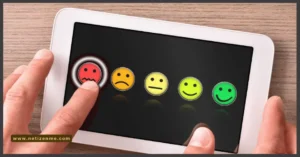
Can perception be altered by motivation?
Perception influences motivation because we determine how to respond to a scenario based on how we understand it. We may wish to accomplish something because we believe it will benefit us. We will not be motivated if we misperceive or do not believe it to be helpful. For example, Employees cannot be forced to be highly productive. You can’t compel your sales team to make more sales. People do anything they want. Employees become more effective when you encourage them to desire to accomplish things that assist your firm success. Once they feel that the job they do fits your demands and theirs, you have, in effect, the three ingredients that contribute to corporate prosperity: perception, motivation, and actions.
What influences a person’s perception?
Perceptual judgments, unlike societal decisions, are grounded in concrete realities and should not be influenced by the social environment. However, recent studies show that the social and emotional environment influences perceptions of physical space. Ecological techniques, for example, show that perception may be affected by previously unconsidered surrounding elements. According to studies, hills appear steeper to those carrying a big rucksack. Because they are essential to actions, contextual variables impact perception: A mountain is more difficult for a burdened person to climb. Therefore it seems steeper.
Regarding sociological power, resource constraints are equally important: Indeed, the definition of power is gaining control over one’s and other people’s resources. For example, we demonstrated that people who feel strong feel a lighter load physically than persons who feel helpless (Gnoth, 1997). As a result, whether or not you possess resources impacts how you see the material reality.
In addition to resource accessibility, motivational orientations, including approach and avoidance, have a role. For example, persons who stand in the front of a steep hill with the thought of approach engaged perceive the hill to be steeper than people who have the notion of avoidance triggered, but only if they are in excellent physical form and action is thus conceivable (How et al., 2013). The impact, however, is lost when approach cues are rejected by directly telling participants that climbing the hill is not essential. As a result, embodied cues linked to the approach are only helpful if they give relevant information about an approaching action.
Perception, in other words, offers a read-out of what one can and cannot accomplish in a particular context. However, such physical or environmental impacts on perception are only successful if participants function in a somewhat automated fashion; once they become aware of possible influences on perception, they dismiss them, as is the case with many other judgement operations.
Check the following reference articles to learn more about Can Perception Be Altered by Motivation?
- How, Y. M., Whipp, P., Dimmock, J., & Jackson, B. (2013). The effects of choice on autonomous motivation, perceived autonomy support, and physical activity levels in high school physical education. Journal of teaching in physical education, 32(2), 131-148. (URL)
- Gnoth, J. (1997). Tourism motivation and expectation formation. Annals of Tourism research, 24(2), 283-304. (URL)
- Therapeutic Potential in Blogging

- The Role of Beliefs in Health-Related Behavior

- Literature review on fear of Negative Evaluation

This article is written by:
Our professional writers and editors are passionate about sharing high-quality information and insights with our audience. We conduct diligent research, maintain fact-checking protocols, and prioritize accuracy and integrity to the best of our capacity.
You can cite our articles under the author name "Netizenme"







